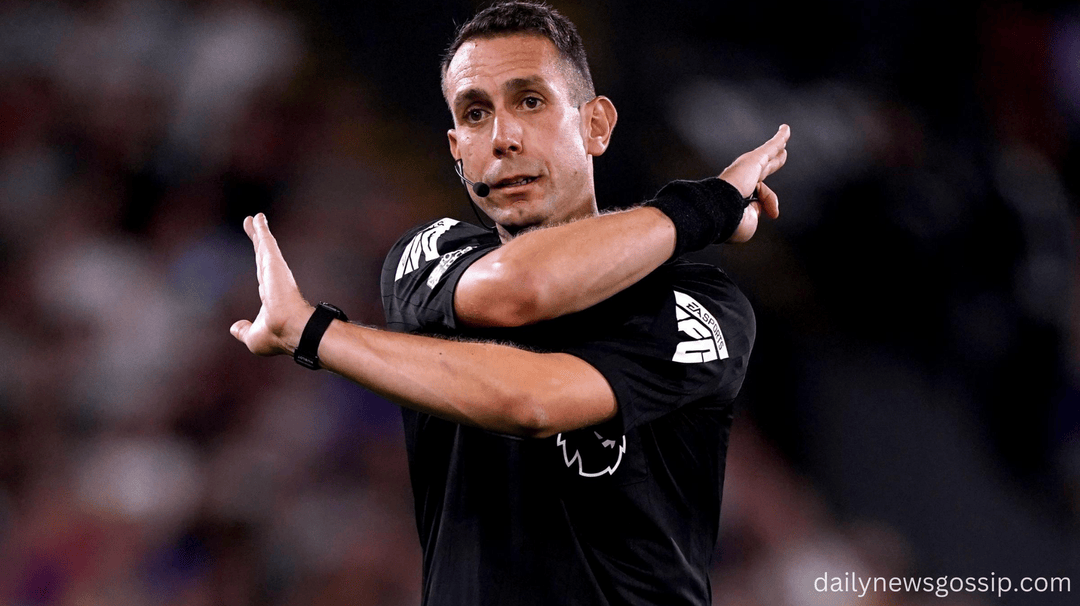In 2022, renowned referee David Coote made an intriguing revelation that captured the attention of football fans and sports enthusiasts alike. Coote shared that he had confided in a former Scottish footballer, offering a rare glimpse into the personal side of a referee’s life. In a sport often dominated by drama, action, and results, these behind-the-scenes moments offer a refreshing perspective on the world of football. This article delves into why David Coote chose to open up, who the footballer was, and the broader implications of this conversation for the football community.
Who is David Coote?
Before diving into his revelation, it’s essential to understand who David Coote is and why his experiences as a referee have earned him widespread recognition. David Coote is an English professional football referee known for officiating in the Premier League and across various football competitions. With years of experience, Coote has become a respected figure in the sport, often at the center of high-stakes matches.
His career is characterized by his keen eye for detail, commitment to fair play, and ability to make difficult decisions under immense pressure. However, refereeing in such high-profile matches can be an incredibly isolating role, often leading to the need for conversations with those who can relate to the stresses of public life.
The 2022 Revelation – Confiding in a Former Scottish Footballer
In a candid interview, David Coote discussed his decision to seek advice and support from a former Scottish footballer in 2022. This revelation sparked interest due to the rarity of referees sharing personal moments from their professional journeys. The individual Coote confided in has remained unnamed for privacy reasons, but the context of the conversation has shed light on some of the challenges referees face behind closed doors.
Coote explained how he reached out to the footballer during a particularly challenging period in his career. It’s not uncommon for referees to deal with criticism, mental strain, and the weight of public scrutiny. In this instance, Coote admitted that the pressures were starting to take a toll on him, leading him to look for advice from someone who had been in the limelight for different reasons – a footballer who had also experienced the highs and lows of a public career.
The former Scottish footballer, who had transitioned into a retired life after his playing career, offered a sympathetic ear and valuable advice on managing the mental and emotional challenges of being a public figure. This conversation, according to Coote, was a turning point in how he approached his responsibilities as a referee moving forward.
The Importance of Mental Health in Football
One of the significant takeaways from this revelation is the importance of mental health in the football world, not just for players but also for referees. The conversation between Coote and the former Scottish footballer highlights a key aspect of modern football – the acknowledgment of mental health struggles among those in the sport, whether they’re on the field or off it.
Referees, like players, face immense pressure. They’re often blamed for controversial decisions, criticized in the media, and scrutinized by fans. In recent years, there has been a growing awareness of the mental health challenges faced by referees, with many acknowledging the emotional toll of their decisions. Coote’s candid conversation with the former footballer underscores the need for more significant support systems within football, ensuring that those who officiate the games are not forgotten when it comes to mental well-being.
The Role of Former Footballers in Helping Referees
It’s not every day that a referee turns to a former player for guidance, yet this act highlights the camaraderie that can exist between football players and referees. In fact, many ex-footballers understand the mental and emotional challenges of being in the public eye, and their experiences may offer valuable insights for current officials who are navigating similar pressures.
The relationship between referees and former footballers is essential for fostering a sense of community within the sport. Footballers have the shared experience of dealing with public criticism and the intense spotlight, making them a relatable source of advice for referees. In this case, David Coote’s decision to confide in someone who had walked a similar path shows the value of peer support, especially in such high-pressure environments.
The Impact of Coote’s Revelation on the Football World
David Coote’s admission has sparked discussions across the football world. Fans, players, and fellow referees have shown interest in the story, with many applauding his transparency and openness. In an era where athletes and officials are often encouraged to maintain a stoic front, Coote’s vulnerability offers a refreshing shift in the narrative.
The positive response to Coote’s story also brings attention to the broader issue of mental health in football. Referees, just like players, should not have to face the weight of their careers alone. Sharing such personal experiences could encourage more referees to seek support when needed, potentially leading to better mental health and overall performance within the sport.
Lessons from David Coote’s Experience

David Coote’s decision to confide in a former Scottish footballer in 2022 serves as a valuable lesson for everyone involved in football. His story reinforces the importance of seeking support, being open about struggles, and recognizing that mental health is an integral part of professional life in the sporting world.
For current referees, Coote’s experience may serve as a reminder that it’s okay not to have all the answers, and sometimes, the best course of action is to turn to someone who understands the unique pressures of the job. Additionally, for players and coaches, understanding the challenges referees face can foster greater empathy and cooperation, leading to a more supportive and positive environment both on and off the pitch.
Frequently Asked Questions
Who is David Coote?
David Coote is an English professional football referee known for officiating in the Premier League and various other football competitions. He has been in the referee spotlight for years, gaining recognition for his fair decision-making and ability to handle high-pressure situations.
What did David Coote reveal in 2022?
In 2022, David Coote revealed that he had confided in a former Scottish footballer during a difficult period in his career. This was a rare moment of transparency, highlighting the mental health challenges referees often face and the importance of peer support.
Why did David Coote seek advice from a former Scottish footballer?
Coote reached out to the former Scottish footballer because he was dealing with the intense pressures and scrutiny that come with being a referee. He found comfort and advice from someone who had experienced similar public challenges during their playing career.
Who was the former Scottish footballer David Coote confided in?
The identity of the former Scottish footballer remains unnamed for privacy reasons. However, Coote mentioned that the footballer was retired and had experienced the highs and lows of public life, making them an ideal person to offer support.
What impact did David Coote’s revelation have on the football world?
David Coote’s revelation sparked discussions on mental health within the football community. It encouraged more open conversations about the emotional toll of public scrutiny faced by referees and players and highlighted the importance of peer support in managing such pressures.
How does David Coote’s story help with mental health awareness in football?
Coote’s story sheds light on the mental health struggles faced by referees, a topic often overlooked. His openness about seeking advice from a peer helps reduce stigma and encourages others in the football world to address their emotional well-being and seek help when needed.
Why is it important for referees to discuss mental health?
Like players, referees face immense pressure from the media, fans, and coaches. Discussing mental health is important as it ensures they have the support they need to handle stress and avoid burnout, ultimately improving their performance and overall well-being.
How can football organizations support referees’ mental health?
Football organizations can provide mental health resources, create peer support networks, and encourage open dialogue about emotional well-being. These steps help ensure that referees, like players, have the necessary tools to manage stress and perform at their best.
Conclusion
David Coote’s 2022 revelation marks a turning point in how we perceive referees and their mental health. By confiding in a former Scottish footballer, Coote highlighted the importance of seeking advice from peers who can relate to the unique challenges of the sporting world. This openness is a crucial step forward in reducing the stigma surrounding mental health in football and ensuring that referees receive the support they need to continue performing at their best.
As the conversation around mental health in sports evolves, Coote’s story reminds everyone involved in football—from players to referees—that they deserve the space to discuss their emotional well-being and find support when needed. This story serves as a beacon of change, encouraging more open discussions on mental health and fostering a more inclusive and understanding football community.


